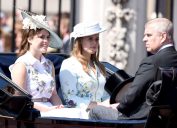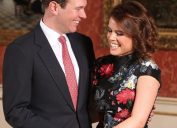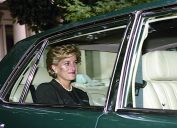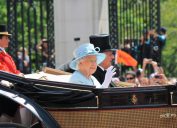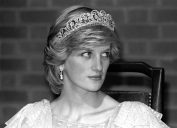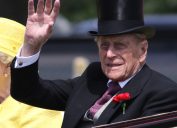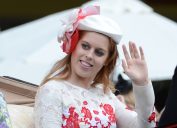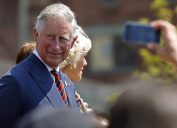After the Prince Andrew Scandal, Insiders Say It's on Prince Charles to Take Charge
The Prince of Wales "needs to put a stop to the chaos," says a royal insider.
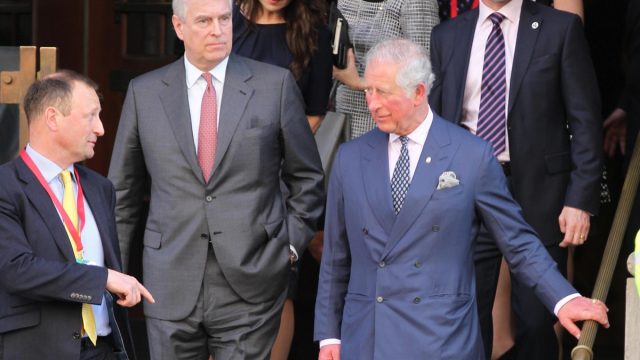
It's been just over a week since the televised self-destruction of Prince Andrew when he tried—and spectacularly failed—to explain his relationship with convicted sex offender Jeffrey Epstein during his interview with the BBC. Now, the royal family is mired in a PR disaster unlike anything since the days of the 1936 abdication of King Edward VIII. And many royal watchers are left asking: Just who is in control at Buckingham Palace these days? Well, according to insiders, it's time for Prince Charles to take charge of the royal "brand" before any more damage is done that could imperil the future of the House of Windsor.
"The monarchy has not survived all these years by allowing members of the family to put their own interests first. It is their duty to serve the Crown," an insider told me. "As the future king, Prince Charles has to put a stop to the chaos."
Queen Elizabeth is 93 and, at 97, the Duke of Edinburgh, is retired. "This is not about the Queen giving up the throne," said my source. "It is about the family having a clear sense of what the protocol is for everyone when it comes to talking to the media and who is to be involved in every decision. There needs to be a clear set of rules in place."
While I'm told the Queen gave her permission for Andrew's BBC interview to take place, she was allegedly not informed that it would focus solely on Andrew's ties to Epstein nor was she consulted about having the interview filmed at Buckingham Palace. (Royal sources have also reported the Queen was "deeply frustrated" over the long shadow the scandal and interview have cast over the royal family.) "It gave the appearance that the entire thing had been sanctioned by the Queen but that was not the case," said my source. "The optics said one thing, but the truth was something else entirely."
Royal historian and biographer Robert Lacey told The Guardian, "With Prince Philip out of the scene, Prince Andrew had effectively become the man in charge of the palace. From the inquiries one can make, it is not really certain that the Queen gave her personal approval for the use of the palace."
Andrew's now infamous interview with Newsnight's Emily Maitlis on the BBC was reported to have been arranged at the urging of a small circle of those closest to Andrew, including his daughter Princess Beatrice, his ex-wife Sarah Ferguson, and his longtime private secretary Amanda Thirsk. It ignited a global media firestorm when the prince failed to express regret over his friendship with Epstein or convey any sympathy for his victims. Raising more questions than it answered, the entire episode demonstrated an incredible lack of judgment on the part of all involved and exposed just how ill-equipped the Palace's current PR operation is to handle the increasing number of family members opting to go rogue, rather than adhere to the former unwritten rule, "Never complain, never explain."
The Palace's post-interview response was swift and shocking: Andrew was relieved from his royal duties by his mother, his staff fired (including Thirsk), and his office kicked out of Buckingham Palace. But the damage had already been done. Lacey told The Guardian, "Prince Andrew has been de-royaled, if there is such a word. What we are talking about is effectively the removal of a member of the royal family as a result of public opinion."
But it wasn't just public opinion that moved the Queen into action. Reports out of London have claimed that both Charles and Prince William were both personally involved in the decision that resulted in Andrew being ousted from the Palace. According the Evening Standard, a "senior royal source" said the move was about "protecting the institution of the monarchy itself." And one source told The Times of London, "William is becoming more and more involved in decisions about the institution [monarchy] and he's not a huge fan of his uncle Andrew."
Another insider told me: "Prince Charles is furious that Andrew's extraordinarily bad judgment has had serious consequences and could damage the monarchy at a time when some members of the public have increasingly called into question the relevance of the institution. He wants a 'slimmed down' monarchy when he becomes king, but he knows there is an immediate need for systemic changes in the way the Palace operates. Communication with the media needs to be more tightly controlled. You can't have members of the royal family going off and doing their own thing."
Yes, based on a recent string of PR nightmares, it would seem the British royals have become more concerned with promoting their own individual agendas than presenting a united front behind the monarchy—a strategy that insiders say could prove disastrous for the Crown. Last month, the Palace faced another PR crisis (which looks far less critical now, given the current situation) when Prince Harry and Meghan Markle expressed their unhappiness about living their lives in the royal fishbowl in an ITV documentary that was purported to have been devoted exclusively to their royal tour of Africa. Speaking to good friend Tom Bradby on the program, Harry failed to deny rumors of a rift between him and William, which reignited rumors of a feud between the brothers that had been simmering all summer. "No one knew they would be airing their grievances in public," said my source. "The Palace was caught unaware. The Queen was disappointed and Prince Charles was deeply upset as well."
Is it possible that the royals and Palace spin doctors have forgotten the disasters of the not-so-distant past? Princess Diana's Panorama interview in 1995 (arranged without the knowledge or consent of the Palace) had a devastating effect on the lives of all concerned. Charles's televised interview with Jonathan Dimbleby in 1994, where he admitted to adultery during his marriage to Diana, did significant damage to his reputation—the effects of which still linger today.
"More than anyone else besides the Queen, Prince Charles understands that the monarchy needs to control the narrative," said my source. "That hasn't been the case for the past year, but it's clear things need to change now before any more damage is done."
The insider continued: "At a time when members of the public are asking politicians what role the monarchy should play in a modern Britain, the behavior of every member of the royal family comes into question and that includes whatever is going on between William and Harry, the Duke of Edinburgh's car crash, Megan Markle's obvious unhappiness, and Andrew's connection to Jeffrey Epstein. Prince Charles and his office are going to need to be quite forceful making the necessary changes."
Lacey confirmed to The Guardian that this is a critical time in the royal family's history. "This will be seen as the moment that marks the transition from one reign to another, when Prince Charles clearly stepped in." And for more on pivotal—and problematic—royal moments, check out 16 Scandals That Rocked The British Royal Family.
Diane Clehane is a New York-based journalist and author of Imagining Diana and Diana: The Secrets of Her Style.
